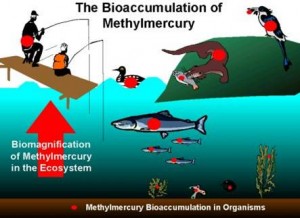Dental clinics and medical schools still making use of amalgam, as well as incinerators/medical waste treatment facilities, have been identified as extremely high risk environments for mercury vapour emissions, posing health risk to workers, patients and the general population.

According to a study conducted by SRADev Nigeria, this is due to the fact that a considerable number of dental clinics lack proper ventilation within the facility which prevents the escape of mercury vapor thus leading to a high concentration of the chemical within the confined space. The study, which assessed mercury levels in selected hotspots in the country, also identified inappropriate handling of mercury/mercury amalgam, mercury containing wastes, lack of awareness regarding health hazards of mercury to human health and its impact on the environment as factors worsening the mercury scourge.
Mercury, a naturally occurring element found in air, water and soil, is proven to be a toxic substance that cause health problems. It is a threat to the development of the child in utero and early in life. People are likewise exposed to it when eat fish and shellfish that contain the compound.
Considered by the World Health Organisation (WHO) as one of the top 10 chemicals or groups of chemicals of major public health concern, mercury affects the nervous, digestive and immune systems.
The study, which sampled dental facilities, waste dumpsites, incinerators and university science laboratories in Lagos, Ibadan and Abuja, utilises the Lumex Mercury Analyser RA-915+ device, which found the mercury levels at a dental clinic located in a basement level in Ceddi Plaza in Abuja above the minimum levels.
The report however suggested that besides dentists enlightening patients on the importance of non-mercury dental fillings over amalgam, legal framework of dental amalgam elimination should be formed, implemented and followed up to the latter. A highly ventilated environment (with cross ventilation and exhaust fans) is also recommended for dental practices and operations.
“Standard operating procedures (SOPs) for mercury handling collection, transport and use, be developed and implemented and be dully followed by dentists and other mercury handlers,” the report suggested, adding that the use of manual handling and mixing of amalgam should be discouraged and penalised.
The study adds: “Mercury specific legislation, including national emissions/releases standards, should formulated and made available to public. Media publicity should be made available through the television, radio and street electronic billboards. Promotion of ART and use of best environment friendly technologies be encouraged. Mercury-free alternatives for dental restorations should be promoted, while government should discourage insurance policies and programmes that favour dental amalgam over mercury-free alternatives for dental restorations. Also, the practice of un-sound and environmentally unfriendly incineration methods should be discouraged nationwide.

There is also a need to review and revise curriculum at dental teaching institutions to emphasise the adverse health impacts of mercury exposure to health care staff, introduction of best environmental practices in dental amalgam use, promotion of non-mercury dental material and mercury contaminated waste management plan.
Best wishes
Mahmood